
Adviesraad chromosoom 6 onderzoek
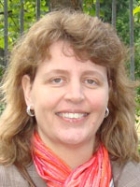

Pauline Bouman
Moeder van een jongen met een chromosoom 6 deletie
en namens de chromosoom 6 Facebook Group
Zie haar Oproep van ouders
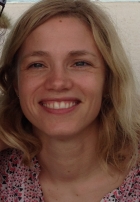

Sarah Wynn
Moeder van twee kinderen met een gebalanceerde translocatie
Voorlichtingsfunctionaris bij
Unique
Gezinnen waarin de diagnose zeldzame chromosoomafwijking wordt gesteld ervaren vaak ernstige stress. Deze stress wordt verergerd door een gebrek aan informatie. Schriftelijke informatie, waaronder websites verlichten angst en stress en kunnen begrip verbeteren. Bij Unique (een stichting voor mensen met een chromosoomafwijking) hebben we gezinsvriendelijke informatie ontwikkeld voor meer dan 130 chromosoomafwijkingen in een poging om dit gat op te vullen met informatie. Wij beschouwen initiatieven zoals het chromosoom 6 project als een broodnodige en enorm waardevolle bron van aanvullende informatie en bronnen voor deze ouders en de professionals die met hen werken.
Het internet en sociale media zijn een krachtig middel voor mensen met een zeldzame ziekte om informatie te delen. Voor onderzoekers, zoals die van het chromosoom 6 project, is het door sociale media mogelijk om grote aantallen deelnemers verzamelen voor onderzoeksprojecten. Door het samenbrengen van alle bekende informatie over een bepaalde chromosoomafwijking uit de huidige informatiebronnen, waaronder de medische literatuur, databanken en patiënten, en deze te verwerken tot een robuuste, nauwkeurige, vrij verkrijgbare en uitgebreide webpagina zou wereldwijd voor gezinnen veel baat opleveren. Het zou ook een middel om verder onderzoek te doen naar zeldzame chromosoomafwijkingen en ziekteveroorzakende genen.
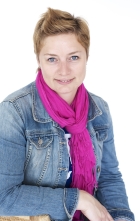


Joyce Schaper
Moeder van een jongen met XXYY-syndroom
Oprichtster Stichting Chromosome Foundation
Hoofdredacteur van jij&iK magazine
Wanneer je op zoek bent naar informatie over zeldzame chromosoomafwijkingen en zeldzame ziekten in het algemeen, is het vaak lastig specifieke informatie te vinden, heel vaak zijn mensen met een zeldzame variant “niet te Googlen”. Google kan een belangrijk onderdeel zijn van je persoonlijke zoektocht wanneer je op zoek gaat naar dit soort unieke informatie maar wat nog veel belangrijker is dat deze informatie ook klopt en wetenschappelijk is onderzocht, in de praktijk is het helaas niet zo.
Een centraal punt waar de informatie, behandelaars en “Googlaars” samenkomen, dat zou naast de noodzaak ook heel waardevol kunnen zijn voor patiënten en ouders.
Naast professionele begeleiding kan een behandelaar ook in zijn netwerk duiken om een helpende de hand te bieden. Ik vergelijk het altijd alsof je een nieuwe computer koopt maar de handleiding er niet bij krijgt, hoe minder je zelf ‘het wiel’ hoeft uit te vinden, hoe meer je er werkelijk kan zijn voor je kind en je gezin. Je weet vaak als ouder waar de behoefte van je kind ligt maar je wil ook graag dat andere dit weten, zodat er goede professionele, persoongebonden begeleiding kan worden aangeboden. Als belangenorganisatie stimuleren wij onderzoek en hopen wij dat er veel meer structurele financiering gaat komen voor onderzoek, zodat deze ondergesneeuwde doelgroep de zorg gaat krijgen die zij zo nodig hebben.
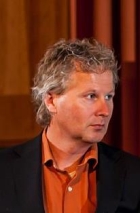

Klaas Dolsma
Directeur Erfocentrum, nationaal informatiecentrum erfelijkheid
Het is belangrijk dat mensen zich bewust zijn van de rol die erfelijkheid speelt bij ziekte en gezondheid. Ouders van kinderen met een chromosomale aandoeningen hebben daar in hun dagelijks leven veel mee te maken. De wetenschappelijke kennis over de gevolgen van chromosomale aandoeningen is nog maar beperkt. Tegelijkertijd weten ouders heel veel. Dit project maakt – voor het eerst gebruik- van die gezamenlijke kennis van ouders, via social media. In dit geweldige project ondersteunen de ouders niet alleen elkaar, maar wordt hun kennis ook nog eens benut voor verbetering van de behandeling van de patiëntjes. Het Erfocentrum werkt daarom heel graag mee in dit project, dat een voorbeeld kan zijn voor toekomstige kennisbundeling via social media door (ouders van) patiënten met een zeldzame aandoening.
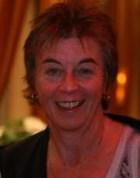
Boudien Flapper
Kinderarts sociale pediatrie, UMCG
Chromosoomveranderingen, zoals veranderingen van chromosoom 6, zijn een belangrijke oorzaak voor aangeboren problemen en een atypisch ontwikkelingsbeloop bij kinderen. Als eenmaal de medische problemen zijn overwonnen, blijven er veel vragen en onzekerheden bij ouders over ontwikkeling, gedrag, opvoeding, dagopvang. Kennis over de gevolgen van deze chromosoomveranderingen op het lichamelijke, psychische en sociale functioneren is belangrijk voor een zo goed mogelijke begeleiding en behandeling van deze kinderen. Vanuit zowel ouders als hulpverleners is er behoefte aan meer informatie, toegespitst op de specifieke chromosoomafwijking van het kind. Met dit onderzoek kunnen we verschillende kenmerken proberen te koppelen aan specifieke gebieden van chromosoom 6. Daarnaast hopen we meer inzicht te krijgen in de functies van de vele genen die op chromosoom 6 liggen, zowel voor het fysieke functioneren en de ontwikkeling, als voor het sociale en emotionele functioneren. Hierop kunnen we de vroege begeleiding richten en mogelijk onnodige beperkingen voorkomen.
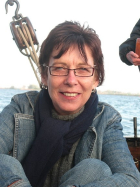
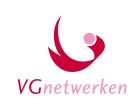
Mieke van Leeuwen
beleidsmedewerker VG netwerken
Kennis is nodig - Krijgen ouders te horen dat hun kind een zeldzame chromosoomafwijking heeft, dan willen ze weten wat dit betekent. Ze gaan op zoek naar kennis en naar ervaringen van andere ouders. En zowel die kennis als de ervaringen zijn schaars. Na een zeldzame diagnose zijn ouders kwetsbaar. Is er weinig bekend, dan krijg je meer vragen dan antwoorden. Er zijn weinig voorbeelden en de toekomst van je kind is onzeker. Wat kun je doen? En wie kan je iets meer vertellen?
Het mooie van dit project is dat het ouders van kinderen met een heel zeldzame aandoening wereldwijd met elkaar in verbinding brengt, dat hun ervaringen in kaart worden gebracht en dat de kennis over hun kind verbonden wordt met de kennis van dokters. Samenwerking tussen ouders en specialisten op deze schaal maakt het mogelijk om het “zeldzame” een gezicht te geven. Het biedt ouders en hun kinderen hoop. Ze staan minder alleen in hun onzekerheid. Daarmee past het helemaal in de doelstellingen van de vereniging VG netwerken. En het geeft hieraan een internationale dimensie. VG netwerken verbindt namelijk ouders en mensen met zeldzame chromosoomafwijkingen die samenhangen met een verstandelijke beperking en/of leermoeilijkheden.
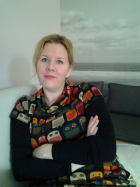
Marianne Doornbos
Kinderarts - erfelijk & aangeboren ziektes; NVK, bestuur sectie EAA
Als kinderarts, gespecialiseerd in kinderen met een aangeboren, erfelijke of ontwikkelingsproblemen, zie ik in mijn dagelijks werk de moeilijke situaties die ouders ervaren het opvoeden van een kind met een complexe aandoening . Ouders willen de beste behandeling, ondersteuning en begeleiding voor hun kind, en als kinderarts ik probeer ze daarbij te helpen door de beste zorg te bieden.
Om het kind en zijn ouders zo goed mogelijk (medisch) te begeleiden is het essentieel om zoveel mogelijk informatie te verzamelen met betrekking tot de specifieke aandoening. Deze informatie is van groot belang voor de ouders, bovendien helpt het hen om contact te leggen met andere ouders en zo hun ervaringen te delen.
In dit huidige tijdperk kan niet alleen informatie worden gevonden in de traditionele manier, maar moderne vormen van informatie-uitwisseling, bijvoorbeeld Google, Twitter, Facebook, databases, websites en weblogs, zorgen voor een hele nieuwe dimensie van het delen van informatie en het verzamelen van gegevens. Het opent nieuwe wegen voor artsen en onderzoekers om in contact met meer patiënten te komen en daarmee ontstaan nieuwe normen voor medische zorg.
Het chromosoom 6 project is erg belangrijk, omdat het niet alleen inzicht geeft op de specifieke genetische aandoening en over de functies van genen op chromosoom 6. Het helpt ons ook als professionals om meer te leren hoe de nieuwe media werken, hoe we het kunnen gebruiken voor onze patiënten en op deze manier kan dit onderzoek als rolmodel voor andere genetische onderzoeksprojecten dienen.
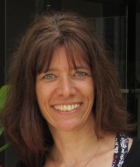
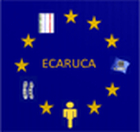
Nicole de Leeuw
Laboratoriumspecialist Klinische Genetica , Radboud UMC, Nijmegen
Coördinator van ECARUCA
Het is vaak niet eenvoudig om een oorzaak voor het klinische beeld van een patiënt te vinden. Dit komt omdat klinische en genetische informatie niet altijd duidelijk met elkaar verbonden wordt. Betrouwbare informatiebronnen en databanken bestaan, maar er is ruimte voor verbetering om meer en betere informatie te verstrekken aan ouders van een kind met een chromosoomafwijking.
ECARUCA is een database waarin (cyto)genetische en klinische informatie over zeldzame chromosomale aandoeningen, waaronder microdeleties en duplicaties wordt verzameld. Het ECARUCA team is zeer gemotiveerd om dit chromosoom 6 onderzoeksproject tot een succes te maken. We hopen het chromosoom 6 onderzoek te kunnen ondersteunen door zo veel mogelijk gedetailleerde klinische en chromosomale informatie op een efficiënte en gestructureerde manier te verzamelen.
Sinds het begin van ECARUCA in 2003 hebben ouders een belangrijke rol gespeeld, we zijn blij dat ouders en professionals in staat zijn om nauw samen te werken in dit project om zo meer informatie over chromosoom 6 veranderingen te krijgen en om betere manieren te vinden om deze informatie te delen met elkaar.
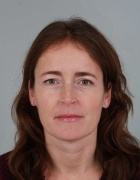
Agnies van Eeghen
Arts verstandelijk gehandicapten (AVG)
Chromosoom 6 veranderingen kunnen gepaard gaan met een scala aan leerproblemen en verstandelijke handicaps. Artsen voor verstandelijk gehandicapten (AVGs) zorgen voor kinderen en volwassenen met deze en andere zeldzame genetische aandoeningen. Vooralsnog is de ontwikkeling en de levensloop van patiënten met een chromosoom 6 verandering moeilijk te voorspellen. Ook is het onbekend welke aandoeningen bij individuele patiënten voorkomen per levensfase, en hoe deze het beste behandeld kunnen worden.
Met behulp van een interactieve website kunnen gegevens over de genetische afwijking en symptomen van vele patiënten worden verzameld, en vergeleken. Zo komen we meer te weten over het verloop van de ontwikkeling, neurologische en psychologische klachten, en andere lichamelijke problemen die geassocieerd zijn met specifieke afwijkingen van chromosoom 6. Deze informatie is behulpzaam voor ouders, en voor de ontwikkeling van ‘health watches’ die door kinderartsen, AVGs, en andere medisch specialisten toegepast kunnen worden. Zo kan morbiditeit geassocieerd met specifieke chromosoom 6 veranderingen eerder ontdekt en behandeld worden, of zelfs worden voorkomen.
Dit project kan een model zijn voor alle zeldzame aangeboren aandoeningen. Meer kennis over genetische afwijkingen en de gevolgen daarvan, zal meer informatie geven aan patiënten, en uiteindelijk meer inzicht verschaffen in het achterliggende ziekteproces en de ontwikkeling van therapieën.
Steven van Vooren
Links
Cartagenia (genetic data services)
Ecaruca (database of cytogenetic and clinical information on rare chromosomal disorders)
Chromosome Foundation
jij&iK magazine (is een spraakmakende glossy, waarin op een prettig leesbare manier zeldzame aandoeningen en lifestyle met elkaar worden verbonden)
Erfocentrum (nationaal informatiecentrum erfelijkheid)
Unique (to inform, support and alleviate the isolation of anyone affected by a rare chromosome disorder and to raise public awareness)
VG netwerken (De Vereniging VGnetwerken verbindt ouders en mensen met zeldzame syndromen die samenhangen met een verstandelijke beperking en/of leermoeilijkheden)
Zeldzaam (website met informatie over zeldzame chromosoomafwijkingen, het oudernetwerk Zeldzaam en veel informatie)
Twitter: Volg @c6study op Twitter, https://twitter.com/c6study
| Laatst gewijzigd: | 11 maart 2025 14:31 |
